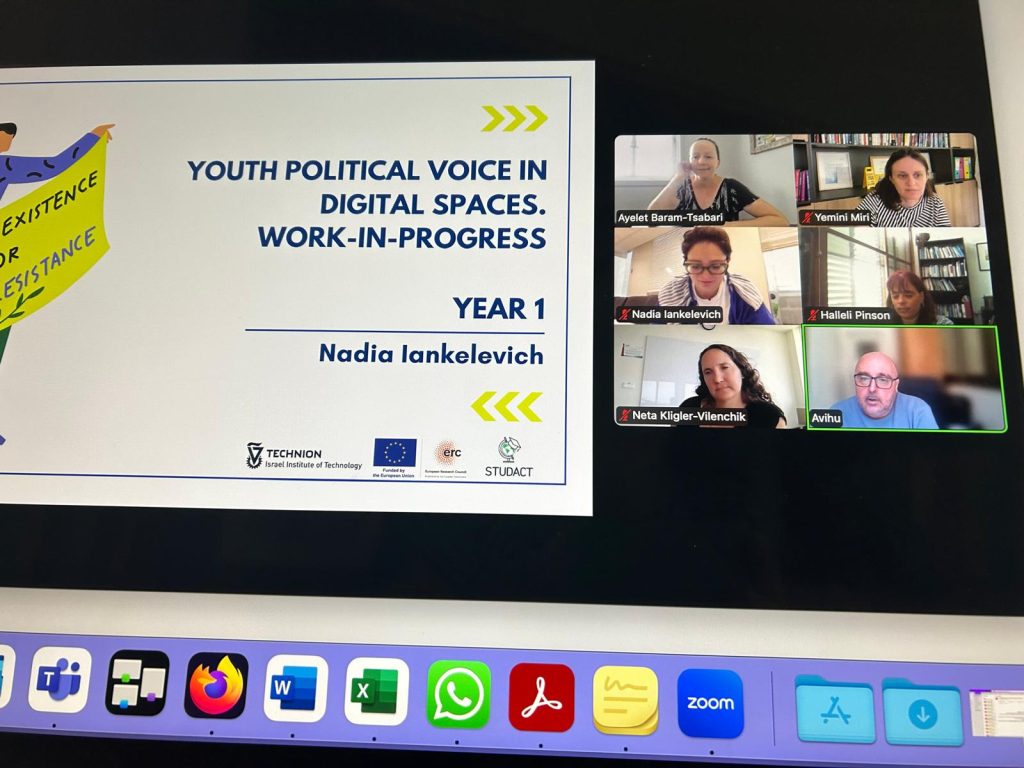Nadia Iankelevich successfully passes the doctoral candidacy exam
Nadia Iankelevich presented and defended her doctoral research at the PhD candidacy examination as a work-in-progress, using the forum to receive in-depth feedback from leading scholars in the field. At the Technion, this examination—usually held about one year after the start of doctoral studies—is considered as important as the final defence. Her dissertation, “Youth Political Voice in Digital Spaces,” examines how young activists in the United States, the United Kingdom, and Australia use platforms such as Instagram, TikTok, and X to advance social-justice agendas, and addresses a methodological gap by combining interviews with systematic analysis of the same activists’ accounts.
Because the original pilot could not be carried out as planned, Nadia conducted a second pilot that linked youth environmental activism with education—treating these practices explicitly as informal civic education and examining activists’ roles as informal, experience-based educators. This work helped refine her analytical framework and coding approach. She now stands at a decision point regarding the next empirical step: either remain as close as possible to the original research design—conducting interviews and analyzing public content—while focusing the case selection on Russian–Ukrainian peace movements; or pivot toward an education-studies direction, extending the second pilot’s lens on educational practices and outcomes.
Following the exam discussion, the committee recommended that she pursue the first trajectory—focusing on Russian–Ukrainian peace movements—rather than moving further into an education-studies track.
Examination Committee:
Prof. Ayelet Baram-Tsabari (Technion)
Prof. Avihu Shoshana (University of Haifa)
Prof. Hilleli Pinson (Ben-Gurion University of the Negev)
Prof. Neta Kligler-Vilenchik (The Hebrew University of Jerusalem)





